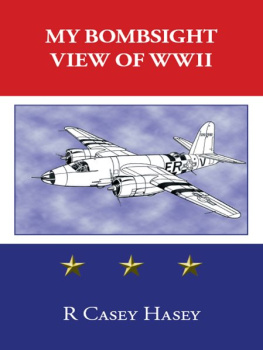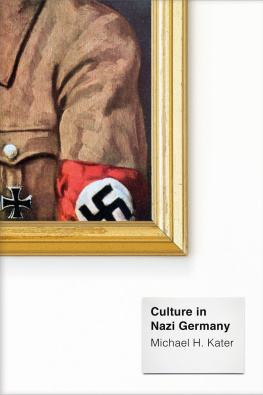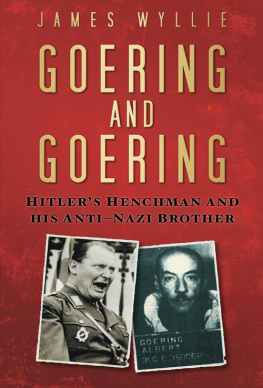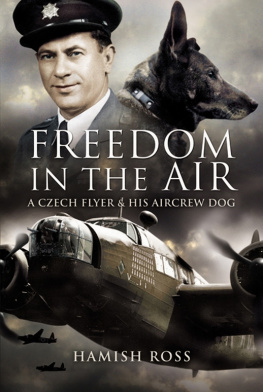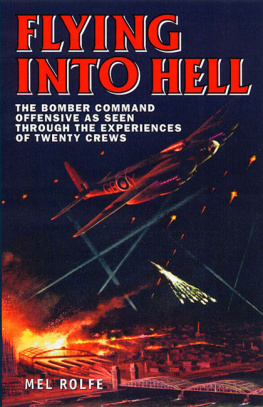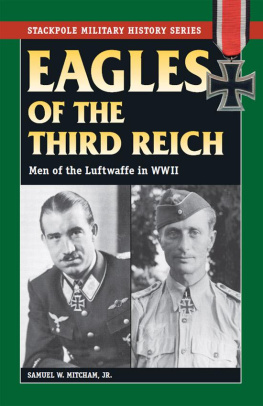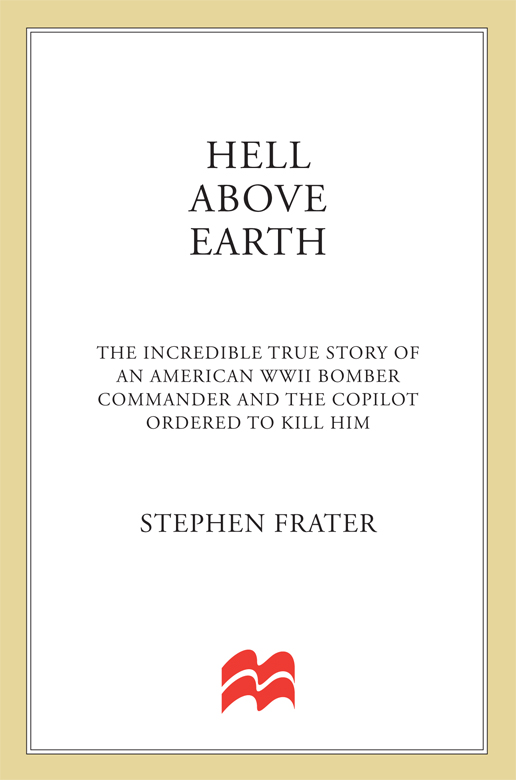
For Dr. and Mrs. Stephan I. Frater
CONTENTS
AUTHORS NOTE
Goering in German is spelled using the umlaut: Gring. For claritys sake I have used Goering to refer to Werner and members of his family in the United States and Gring to refer to Hermann Gring and his ancestors in Europe. Karl F. Goerings name, as recorded by U.S. Immigration, the passenger list of German ocean liner Bayern, and the U.S. Census Bureau is spelled with a K. At some point, Karl switched to the more anglicized spelling, Carl. I have used the former throughout.
Dialogue in certain chapters has been reconstructed from firsthand source interviews, mission group reports, post-incident reports, airmens private journals, and wartime letters home.
Personal interviews were conducted with all Goering crewmen then alive: pilot Werner Goering; copilot Jack Rencher; top-turret gunner Orall Gustafson, and also with wing commander William Heller. The passage of sixty-seven years has no doubt left room for omission, error, or lapses. Dialogue is therefore not a verbatim transcript, but it is the way these aviators all seem to remember the waras if it happened yesterday.
Any errors, which Im sure exist, are strictly my own.
ACKNOWLEDGMENTS
Writing history, A.J.P. Taylor used to say, was like W. C. Fields juggling: it looks easy until you try to do it yourself, is the way distinguished historian Andrew Roberts introduced his latest book. Truer words have never been written.
This book would have never started without the help, kindness, and encouragement of Michael Korda, to whom I owe a debt I can never repay. My agent, Michael Carlisle, and his talented colleague Lauren Smythe at Inkwell Management, were always there for me with wise, patient, and confident counsel. My editors at St. Martins Press, Marc Resnick and Sarah Johnson, waded through ever-shifting drafts and shaped the book in too many ways to describe. Werner and June Goering opened their home, scrapbooks, and a lifetime of memories to a total stranger. Their children, Scott Goering and Carlinda Dirks, have been stalwart supporters since the very beginning and I thank them and Werners granddaughter Zoe Dirks, for their tireless efforts. The late great Jack Rencher, his son Brian, and daughter-in-law Monica, all devoted innumerable hours to help me. It is a personal regret that Jack did not live to see his story in print. Jacks sister, Gladys Ashton, was kind enough to always make herself available, as did Jacks niece and Gladys daughter, Kay Johansen. Gary Moncur spent hours helping me with everything from fact-checking to finding photos; his dedication to the 303rd BG, as historian, is a tribute to his late father, Vern, and all Hells Angel airmen. Mark Forlow, and Mike Faley, the historian for the 100th Bomb Group and the 13th Combat Wing and board member of the Eighth Air Force Museum and Roger A. Freeman Eighth Air Force Research Center pointed me in the right direction on more than one occasion. Baerbel Johnson, German genealogy specialist at the Family Library Division of The Church of Jesus Christ of Latter-Day Saints undertook an incredible research effort in pinning down the Goering family tree back to 1601. Dresden historian Marshall De Bruhl provided me with tremendous insight into the horrors and conflicting rationale surrounding the subject matter I was about to tackle. George Hoidra, public affairs director of the Eighth Air Force Historical Society and Dr. John Q. Smith of the Air Force Historical Studies Office at the Pentagon both made generous contributions and suggestions. My good friends John and Marjorie Meyer helped make this book a reality by providing encouragement and support which I appreciate beyond words. Dr. Ivan Harangozo always helped at critical junctures, no matter at what hour. Connie Konsler spent untold, mind-numbing hours sorting through various drafts and was an indispensible and talented editorial assistant. Joni Adno, the daughter of John Pyram King, a WWII copilot made stylish and wise suggestions and graciously introduced me to her father. Talented editor Hilary Hinzmann provided generous detailed editorial guidance at an early stage without which this book could not have been completed. John Flicker also provided crucial editorial assistance. Thanks as well to Sally Sheets Wiggins, Elizabeth Curione, Mark Lerner, Fred Preller, Douglas Keeney, Phyllis A. Blackwell, C. Douglas Sterner, Mike Connelly, Jan Gehle, and last but never least, my brother, Thomas, my sister, Dr. Susan Stephens, and my nephew, James Christopher Stephen, who all provided me with periodic morale boosts and a belly laugh whenever the road seemed too steep.
Heartfelt thanks to all.
PREFACE
While writing a nonfiction book review about the Battle of Britain, I stumbled across newspaper articles, books, and military Web sites that categorically stated that Nazi Luftwaffe head Hermann W. Gring, Adolf Hitlers legal successor, had American relatives including a nephew, Werner G. Goering, who was a WWII bomber pilot in the European theater.
Army records confirmed that Werner, a twenty-one-year-old Mighty Eighth army air force captain in early 1945, commanded forty-nine Flying Fortress combat missions over Nazi-occupied Europe, well beyond the thirty sorties that then constituted a lead pilots tour of duty. He could have gone home by Christmas 1944 as most of his original crewmates did, but at the peak of the bloody air war, Werner signed on for a second tour with the British-based 303rd Bombardment Group, famed as the Hells Angels, one of Americas most storied warrior fraternities and the single most active bomber group in the army air force. He fought until the bitter endthe Nazi surrender on May 8, 1945. Among a fistful of other medals, he received the Distinguished Flying Cross, one of the nations highest military decorations.
Gary Moncur, the 303rd Bombardment Groups historian and son of Captain Vern Moncur, a WWII Hells Angels pilot, features Werners story on the units Web site, where a page is devoted to the irony of the Goering crew fighting against the Luftwaffe led by Werners infamous uncle, Hermann Gring. When I contacted him for information about Werner, Garys reply was: Good luck. Ive never met, corresponded, nor spoken with him. Werner would have been eighty-five and Gary thought he was still alive.
During the sixty-five years following the Nazi capitulation, Werner attended only one annual reunion of the Hells Angels, in 1992 in Boise, Idahothe hometown of his copilot, Lt. Jack Rencher. Goerings appearance was a singular tribute to his lifelong friend and copilot. He is the units reclusive, legendary specter and prodigal son who served his country well beyond a full measure and then seemed to vanish. It took months to reach Werner for a brief phone call. Taciturn and waryhe hated reportershe didnt want to talk about the war or his family with a stranger, yet consented to meet if I was willing to come to Tucson. But, he warned, It will be a waste of your time and money, since I didnt do anything special and left the war behind a long time ago. Days later, while flying to meet the reclusive Goering, who avoided the spotlight for nearly seven decades, it hit me that it was the chronological equivalent of meeting a Civil War veteran in 1930. He is among the very last of his peersa man who saw and did things the world had never previously experienced and never will again. He quietly carried the burden of his blood-soaked surname throughout the war and beyond; battled the Nazi war machine in the wars longest and deadliest battle for Americans; and was nearly assassinated by a suspicious U.S. government even as the Luftwaffe was killing his comrades by the tens of thousands. Being an aloof, quiet loner and nondrinker didnt help. He avoided the officers club, the center of WWII military social life, which just heightened the mystery surrounding the damn reservist American pilot with the infamous surname. What the hell was Werner Goering doing piloting an American heavy bomber over Germany? It was a question military and civilian intelligence had struggled with and prepared for, with extreme prejudice, if and when the need arose.



